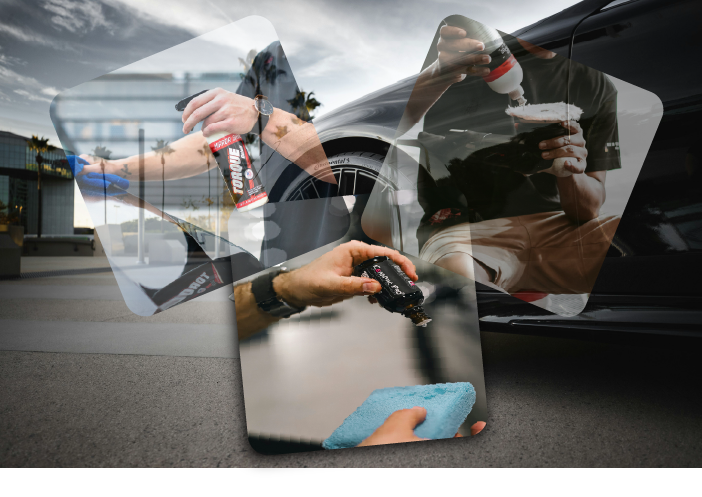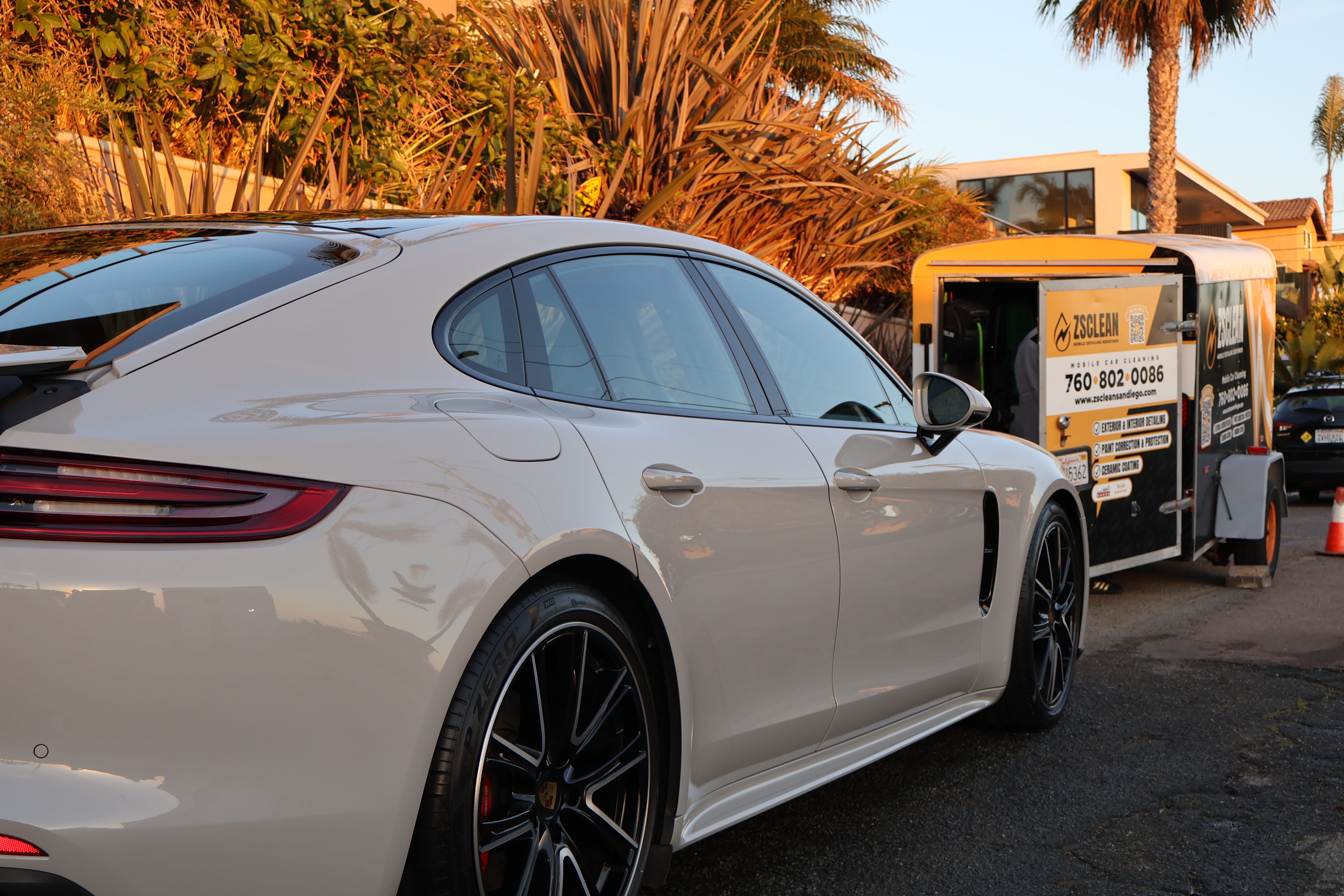Extend your car's life with a reliable car care routine in San Diego. Discover tips to protect your vehicle's resale value through regular maintenance and detailing.
If you've ever tried protecting your car's paint, you've probably run into the same problem most people do

If you've ever tried protecting your car's paint, you've probably run into the same problem most people do: too many options and too much hype. Everyone seems to be shouting about the latest miracle product that'll make your car shine for years and somehow make dirt bounce off like magic.
In this post, I want to break down the truth about car wax, paint sealants, and ceramic coatings. I’ve used them all, I’ve seen what works (and what doesn’t), and I’ll tell you the real pros, cons, and how to know what’s right for your car. No sales pitch, just real answers from someone who details cars every day.
Before we compare anything, let’s get something straight. Wax, sealant, and ceramic coatings all serve the same basic purpose: to protect your car’s paint.
They create a layer between your paint and the outside world — water, sun, dirt, bird poop, bugs, UV rays, and everything else that wants to dull your shine. But not all protection is equal.
Each of these options works in its own way, lasts a different amount of time, and gives a different kind of finish. Here’s what you should know.
Car wax, especially carnauba-based wax, has been used for decades. It gives paint a deep, rich glow and has that smooth, buttery feel most people associate with a freshly waxed car.
How it works: Wax sits on top of the clear coat and forms a soft layer that repels water and adds some shine.
Pros:
Cons:
Good for: Car enthusiasts who enjoy waxing on weekends, or someone who wants their car to look great for a show or event.
Learn more about carnauba wax and its properties in this article from Meguiar’s.
Paint sealants are basically synthetic waxes, but made in a lab to offer better durability and bonding.
How it works: Sealants chemically bond to the surface of the paint and create a slick, glossy layer.
Pros:
Cons:
Good for: Daily drivers, people who park outside, or anyone who wants a strong layer of protection without a huge time commitment.
You can explore different sealants like Turtle Wax Hybrid Solutions or Jescar Power Lock Plus, both known in the detailing community for longevity and ease of use.
Ceramic coatings are a whole different level. Made from SiO2 (silicon dioxide), they form a semi-permanent bond with your paint and create an extremely durable layer. This layer is resistant to water, chemicals, UV, and even minor abrasion.
How it works: Once cured, ceramic becomes a hard, slick, invisible shell that water and grime can’t easily stick to.
Pros:
Cons:
Good for: Long-term vehicle owners, luxury vehicles, or anyone who wants a true “set it and forget it” layer of protection (with some upkeep).
Check out this breakdown from Dr. Beasley’s if you want to dive into the science side of things.
Here’s the real answer: it depends on your goals, your car, and how much effort you’re willing to put in.
Here at Z’s Clean, we offer all three options and walk customers through what makes the most sense based on their paint condition, budget, and how long they want the protection to last.
People ask me all the time: "Is ceramic coating worth it?" And my answer is usually: yes, but only if you care for it.
If you get a ceramic coating but never wash your car or do any kind of upkeep, you’re better off getting a wax or sealant and saving the money. But if you want your car to stay clean longer, be easier to wash, and look amazing in sunlight, it’s worth it.
That said, I’ve seen 5-year coatings break down in under a year because they were slapped onto dirty paint with zero prep. I’ve also seen basic sealants outperform coatings just because the car was properly maintained.
So whatever you choose, prep and maintenance are everything.
If you want to learn more about what coating or protection makes sense for your car, or want to book a quote or in-person service, visit our ceramic coating page here.
We’re here to help — no hype, just honest detailing done right.
Get car care tips and updates you’ll actually use.

Extend your car's life with a reliable car care routine in San Diego. Discover tips to protect your vehicle's resale value through regular maintenance and detailing.

Discover the ultimate guide to mobile car detailing in Escondido for 2026, learn about pricing, included services, and choosing the best detailer for your needs.